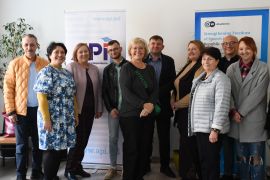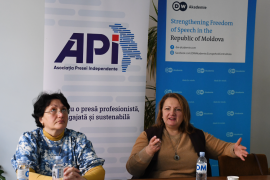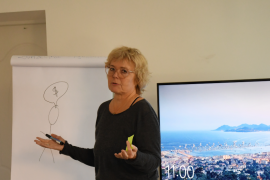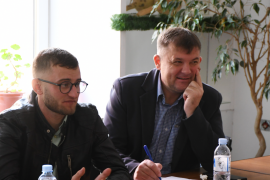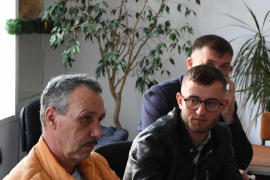back
Crisis Communication – Impetus for Sustainable Partnership Among Authorities, Media and Civil Society
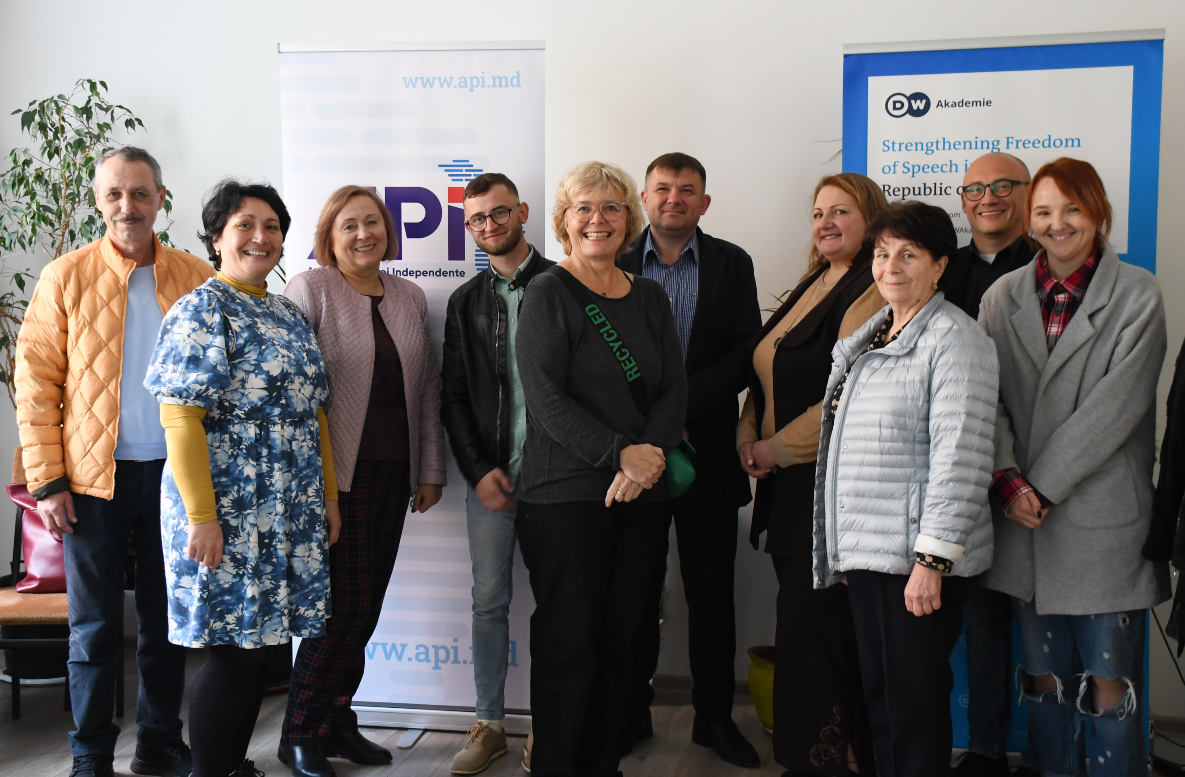
Vitalie Condratchi, local expert (Photo: API).
What a crisis is and how it could be overcome through different communication tools were the topics tackled in the first phase of training for members of Ungheni Crisis Communication Cell. International expert Suzanne Moll and local expert Vitalie Condratchi familiarized the participants with the basics of crisis and crisis management, especially with reference to the energy crisis.
Members of the Ungheni Crisis Communication Network participated in a series of trainings and thematic discussions at the end of October. They focused on the need to create a crisis cell at the local level, review of the factors involved and affected by the energy crisis, the role of the media in times of crisis, and fact-checking for correct and objective information of citizens.
Referring to the importance of the crisis cell in Ungheni, Vladimir Bîrzoi, member of the network, believes that this initiative is useful because it will be able to prevent some undesirable things: "By informing citizens in due time, they will be able to react more adequately and correctly in crisis situations. At the same time, this project will help us to cushion the effects to some extent. In crisis situations it is very important to be united, not to divide society into good and bad or to look for scapegoats, because only through cooperation and communication can any crisis be overcome."
International expert Suzanne Moll who has also been a trainer for other crisis communication networks in other countries, says that after a few days of work, Ungheni community convinced her that Moldova was the right place to continue this project: "Developing messages and disseminating information in a crisis situation has become increasingly important. Network members managed to come up with a number of ideas after just a few days of training and discussion, and this is impressive."
The theoretical and practical sessions were attended by members of the crisis communication network, representatives of various civic associations, local authorities and media in the region, which will develop their communication skills in the coming period to help the community overcome crisis situations. Vitalie Condratchi, communication expert, believes that such a crisis communication cell has a number of benefits, it helps all its members to better understand the situation and the needs of others, and facilitates community informing: "This network also brings a new model of relationship among people and institutions that, at first sight, are on different sides of the barricades – public authorities, media and civil society – and puts them in a voluntary framework."
This opinion is also shared by Elena Burlacu, a network member who stresses the need for citizens' involvement in the development of society: "Establishing a crisis cell in Ungheni will significantly strengthen the partnership among LPAs, media and civil society, so that everyone can come up with ideas and solutions to the problems we are going through, fight falsehoods and disinformation and contribute to creating a favourable climate for community development."
The Crisis Communication Network in Ungheni is a pilot project for the Republic of Moldova launched by API in partnership with Deutsche Welle Akademie (Germany). The project involves creation of a crisis communication network made up of professionals in different fields who will learn how to manage crisis situations in the country or a locality/region in terms of public communication.
